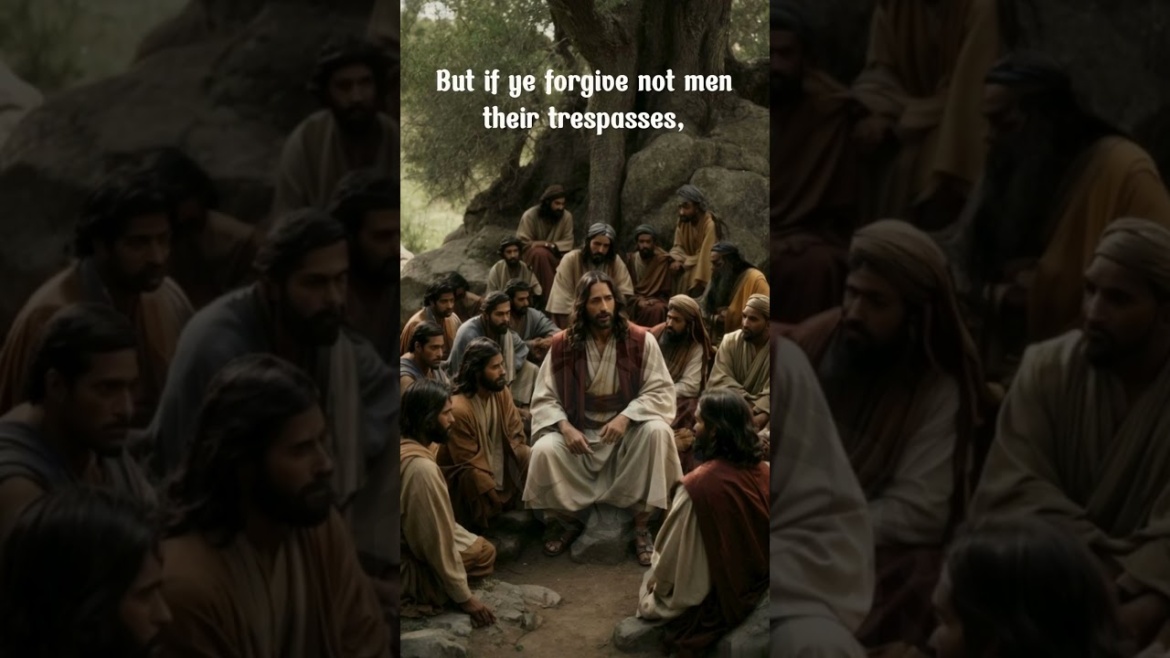The Significance of “For if ye forgive men their trespasses, your heavenly Father will also forgive you: But if ye forgive not men their trespasses, neither will your Father forgive your trespasses.”
The phrase “For if ye forgive men their trespasses, your heavenly Father will also forgive you: But if ye forgive not men their trespasses, neither will your Father forgive your trespasses.” is a powerful christian law used by Jesus in Matthew 6:14-15 from the Sermon on the Mount. It is part of Jesus’ Sermon on the Mount, where he teaches on various aspects of discipleship and Christian living. It is a powerful christian law used by Jesus to highlight the importance of forgiveness and its connection to God’s forgiveness in the context of Christian faith and behavior.
Context of the Phrase
The law appears within Jesus’ Sermon on the Mount, a collection of teachings focusing on right living and morality for spreading God’s message. It is situated within a section emphasizing prayer and humility. Jesus warns against hypocritical practices like public fasting and praying (Matthew 6:5-8). He then instructs on the proper way to pray, focusing on inward devotion rather than outward display. In this context, the law on forgiveness appears as an extension of the emphasis on inward transformation.
Significance of the Phrase
The law emphasizes the principle of reciprocity: as we forgive others, so will God forgive us. Forgiveness becomes a way of embodying God’s own compassion and participating in divine love. It challenges the belief that we can earn God’s forgiveness through actions or rituals. It also warns against holding onto bitterness and resentment, which can hinder our own spiritual growth in connection with God.
Here are some key points:
God’s Character: It portrays God as a merciful and forgiving being who desires reconciliation with his children. It highlights the importance of reflecting God’s character in our own interactions with others.
Conditional Forgiveness: It emphasizes the connection between human forgiveness and divine forgiveness. Forgiveness is not simply a unilateral act of God, but also requires a corresponding action from humans.
Resentment Cycle: It encourages individuals to break free from the cycle of resentment and bitterness that can arise from holding onto past hurts. By choosing to forgive, individuals can experience inner peace and healing.
Ethical Implication: It has implications for ethical conduct, urging individuals to treat others with love and compassion, even when wronged. It highlights the interconnectedness of love and compassion. By forgiving others, we embody the qualities of love and compassion that God desires for his followers.
Application of the Phrase
The law calls for active practice of forgiveness in everyday life, even towards those who have wronged us deeply. It necessitates empathy and understanding, seeking to see the situation from the other person’s perspective. Forgiveness may not erase the hurt or injustice, but it allows us to let go of anger and resentment, paving the way for healing and reconciliation. In applying this principle, it’s important to distinguish between forgiveness and condoning or enabling harmful behavior.
Here are some key points:
Personal Development: It can guide us in seeking forgiveness and reconciliation with those who have hurt us, navigating conflict through inward transformation.
Community Building: It can encourage forgiveness and understanding within communities, fostering stronger bonds and reducing divisions.
Spiritual Growth: It can motivate us to cultivate a spirit of forgiveness and compassion, aligning ourselves with God’s character.
In summary, the law is a powerful reminder of the importance of forgiveness. It encourages us to break free from resentment, reflect God’s love and compassion, and build stronger relationships with others. It calls us to embrace forgiveness as a central tenet of our faith and practice. By extending forgiveness to others, we not only open ourselves to God’s forgiveness but also cultivate love, compassion, and inward transformation. By incorporating its teachings into our lives, we can cultivate inner peace, promote healing, and contribute to a more compassionate world.
THE CHILD IS INTENDED INTO ONE SUB & NINE EXTREMES
« Samsara Extreme Of Heaven In Child Intended To Exist »
WHAT IS ✨ COLD CHILD SPACE? IT IS JUST CHILD EXTREME!
« Child Extreme’s Code & subExtreme’s Law »









